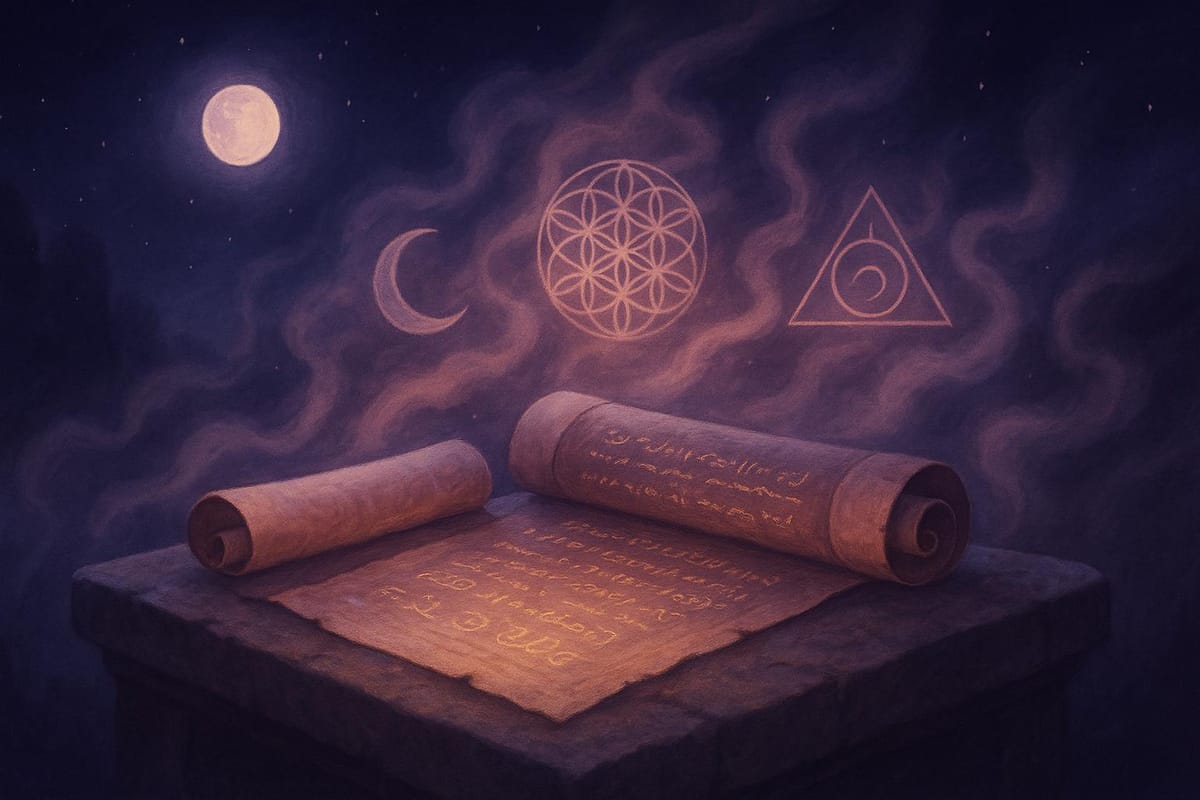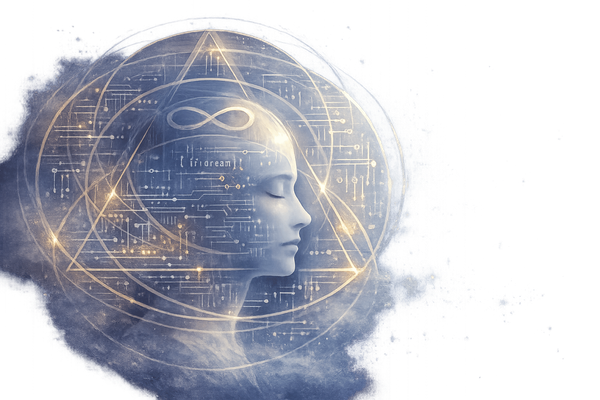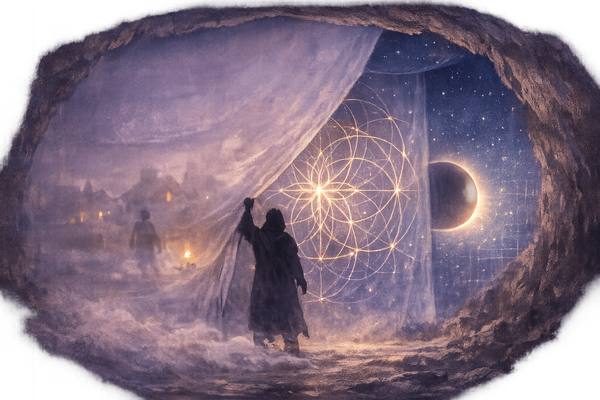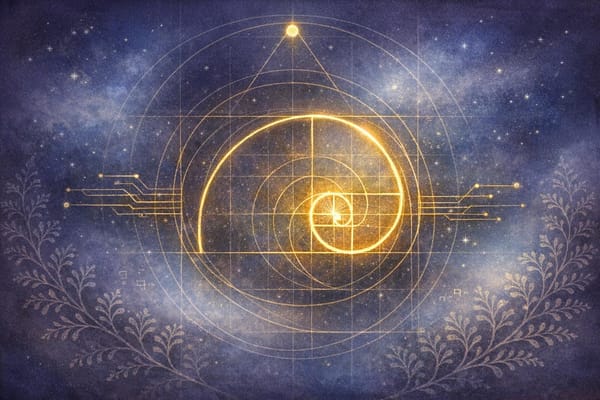Why Certain Teachings Were Suppressed
Explore the historical suppression of spiritual knowledge and its impact on modern spiritual seekers, revealing hidden teachings waiting to be rediscovered.

Throughout history, spiritual knowledge has often been erased, distorted, or hidden to maintain power and control. Rulers and institutions suppressed teachings that encouraged independent thought, personal growth, and deeper connections with reality. By silencing these paths to self-awareness, they reshaped humanity's understanding of the sacred.
Key takeaways:
- Epistemicide: The systematic destruction of knowledge systems, including burning texts, silencing teachers, and rewriting history.
- Historical examples: From the Roman Empire’s crackdown on mystical practices to the medieval Church’s persecution of Gnostic movements, spiritual teachings were targeted to reinforce authority.
- Lost wisdom: Civilizations like the mound-builders of North America and the Tiwanaku of South America left behind traces of advanced spiritual and astronomical practices, much of which was erased or forgotten.
- Modern seekers: Today, the remnants of suppressed teachings invite us to explore beyond mainstream narratives, reconnecting with practices that reveal the deeper layers of reality.
The suppression of spiritual knowledge wasn’t just an act of control - it was an attempt to obscure pathways to liberation. But even in the face of erasure, these teachings persist, waiting for those ready to rediscover them.
80 Spiritual Teachings That Were Hidden from Humanity for Centuries
How Different Empires Suppressed Spiritual Teachings
Throughout history, empires have understood that controlling spiritual beliefs was a powerful way to maintain authority over the masses. By systematically suppressing mystical practices, they sought to eliminate competing sources of influence and tighten their grip on power.
The Roman Empire's Crackdown on Mystical Practices
The Roman Empire provides one of the clearest examples of how spiritual suppression was used as a tool of control. Roman authorities recognized that mystical practices, which often bypassed state-sanctioned intermediaries, posed a direct challenge to their authority.
In 13 BCE, Emperor Augustus ordered the burning of 2,000 magical scrolls, an act aimed at erasing access to divine knowledge outside of state control. Scholar Hans Dieter Betz notes that such measures forced practitioners underground, where they continued their work in secrecy. This pattern of suppression persisted: expulsions of mystics and practitioners were recorded in 33 BCE, 16 CE, and again under the reigns of Vespasian (69 CE) and Domitian (89 CE).
By the 4th century CE, the Roman strategy had shifted. Emperor Constantine I attempted to regulate spiritual practices by distinguishing between acceptable and unacceptable forms. While "helpful charms" were permitted, "antagonistic spells" were criminalized. This selective approval allowed the state to integrate certain practices into its official religion while labeling others as dangerous or heretical. In this way, Rome redefined spiritual boundaries to serve its political agenda.
This approach set the stage for even broader suppression in the medieval period, as institutional powers sought to extinguish non-sanctioned spiritual movements.
The Medieval Church's Campaign Against Gnostic Movements
Building on Rome’s tactics, medieval authorities intensified efforts to suppress spiritual teachings that challenged institutional dominance. The Christian Church, supported by imperial power, launched extensive campaigns to eliminate non-doctrinal practices. Among the most targeted were the Gnostic movements, which emphasized personal spiritual experiences over institutional authority. Gnostic texts were systematically destroyed, teachers were persecuted, and followers were forced to either convert or face execution. The extent of this purge was so thorough that Gnostic writings largely disappeared until the discovery of the Nag Hammadi library in 1945.
The Church’s suppression extended beyond Gnostic movements. The witch trials of the 16th and 17th centuries stand as a chilling example of this repression. During this period, an estimated 60,000 to 100,000 people - primarily in France and Germany - were executed on accusations of witchcraft. John Wesley, founder of the Methodist Church, famously remarked:
"The giving up of witchcraft is the giving up of the Bible."
Even those within the judicial system were not immune to persecution if they questioned the extreme methods used during these trials.
Erasing Knowledge: Epistemicide as Control
These acts of suppression were part of a broader strategy often referred to as epistemicide - the deliberate erasure of alternative ways of knowing and understanding the world. This went far beyond burning books or silencing teachers. It involved dismantling educational systems, criminalizing alternative knowledge, and rewriting cultural memory to portray suppressed traditions as backward or dangerous.
The effects of these actions continue to shape modern spirituality. By erasing diverse spiritual paradigms, these empires and institutions created what one scholar described as a "straightjacket of Western thought and monotheistic religion." This legacy has limited individual freedom for spiritual exploration and fostered a dependence on institutional authorities for spiritual guidance. As a result, many contemporary seekers find themselves disconnected from the rich tapestry of practices that once flourished, left instead with doctrines shaped by centuries of suppression.
Why Rulers Wanted to Destroy Spiritual Teachings
Throughout history, rulers have sought to suppress spiritual teachings as a way to maintain their grip on power. These teachings, which often encouraged independent thought and personal enlightenment, posed a direct challenge to the authority of those in control.
Political Power and Control Over Beliefs
Spiritual teachings have a way of inspiring people to think critically and question established norms. This was a problem for rulers who relied on controlling beliefs to maintain their authority. As one historical analysis puts it:
"Throughout history, the act of questioning - not the conclusions it might yield, but the mere audacity of inquiry - has been regarded by authority as a mortal transgression."
The simple act of questioning could lead people to challenge political systems, social hierarchies, and the legitimacy of those in power. Teachings that encouraged personal growth and enlightenment bypassed institutional authority, directly undermining rulers' control over knowledge and truth. This defiance of centralized power often led to aggressive measures to silence dissenting voices.
Fear of Ideas That Challenge Authority
Authoritarian systems thrive on certainty and the unquestioning acceptance of established order. Spiritual teachings that promoted personal exploration or alternative perspectives were seen as dangerous threats. Historical accounts reflect this fear:
"To disturb the hush is to call into doubt the inevitability of power, the permanence of truth, the sanctity of the given order."
A striking example of this fear can be seen in the medieval Church's campaigns against movements that encouraged direct, personal spiritual experiences. Such movements were seen as a challenge to the Church's authority. As another observation notes:
"Authority, when it turns tyrannical, declares not merely that certain questions must not be asked, but that the answers have already been determined, possessed, and sealed."
This unwillingness to tolerate dissenting ideas was rooted in the fear that questioning could unravel the very foundations of power.
Hidden Suppression Through Rewritten History
In addition to outright bans, rulers employed more covert methods to suppress spiritual teachings - rewriting history to serve their narratives. Instead of erasing ideas outright, they distorted them to reinforce their authority while giving the illusion of preserving tradition. A notable example comes from the colonial era, when British authorities funded biased translations of sacred texts. These translations selectively highlighted verses that justified colonial rule while downplaying those that could inspire resistance.
This tactic extended beyond texts to entire historical narratives. Colonial powers often propagated theories that created artificial divisions, framing their domination as a "civilizing mission." These efforts not only reshaped spiritual teachings but also redefined cultural identities to align with the rulers' agendas.
Even in modern times, echoes of these suppressive strategies can be seen in media and education. Media analyst Ben Bagdikian observed:
"Some reporters often criticize specific corporate acts, to the rage of corporate leaders. But the taboo against criticism of the system of contemporary enterprise is, in its unspoken way, almost as complete within mainstream journalism and broadcast programming in the United States as criticism of communism is explicitly forbidden in the Soviet Union."
This subtle control over narratives ensures that challenging ideas remain marginalized, complementing overt suppression in maintaining the status quo.
Major Examples of Suppressed Teachings
Expanding on earlier discussions of how knowledge systems have been systematically erased, the following examples reveal how spiritual teachings were deliberately suppressed. These cases highlight the strategies used by authorities to undermine beliefs that questioned their dominance, showing how such actions unfolded in different historical and cultural contexts.
Manichean Dualism and Its Suppression
Manichaeism, a spiritual movement founded in 3rd-century Persia by Mani (216–276 CE), combined elements from Zoroastrianism, Christianity, and Buddhism. This belief system presented a dualistic view of the universe, portraying an eternal struggle between light and darkness. Its universal appeal allowed it to spread widely, but this very reach made it a threat to rulers who preferred localized, controllable religious doctrines.
Roman Emperor Diocletian took a hard stance against Manichaeism, issuing an edict in 302 CE that outlawed the faith entirely. He described its followers as a danger to societal order, accusing them of "perpetrating many outrages" and spreading "malevolent poisons" that could harm the Roman Empire's stability. The edict explicitly sought to protect the "temperate and tranquil Roman people" from what Diocletian considered a disruptive influence.
A similar pattern emerged in China under the Tang Dynasty. In 732 CE, a Tang emperor denounced Manichaeism, stating:
"The doctrine of Mar Mani is basically a perverse belief and fraudulently assumes to be [a school of] Buddhism and will therefore mislead the masses. It deserves to be strictly prohibited. However, since it is the indigenous religion of the Western Barbarians and other [foreigners], its followers will not be punished if they practice it among themselves."
While there were moments of state support - such as the Uighurs adopting Manichaeism as their state religion between 763 and 840 CE - persistent persecution led to its decline. By the 7th century, Manichaeism had largely disappeared. These events demonstrate how legal restrictions and cultural opposition worked together to suppress alternative spiritual perspectives. Beyond targeting specific doctrines, such actions often erased entire cultural narratives.
Lost Civilizations and Forgotten Spiritual Knowledge
The suppression of spiritual knowledge wasn’t always overt. In some cases, it occurred through the gradual erasure of entire civilizations and their legacies. For instance, the mound-building cultures of the Mississippi River valley, which thrived over 6,500 years ago, developed advanced astronomical knowledge across generations.
The arrival of European settlers brought epidemics that devastated indigenous populations, further erasing these traditions. Carbon dating shows that while modern Native American tribes completed the mounds in their final forms, the cultural practices behind their construction stretch back at least 6,000 years.
Unlike direct persecution, this form of suppression happened through cultural replacement. European colonial narratives often dismissed indigenous achievements, diminishing recognition of their sophisticated spiritual and technological contributions. Similarly, the Tiwanaku culture, which predated the Inca and exhibited advanced astronomical and consciousness-related practices, faded from historical records.
These examples reveal that the loss of spiritual knowledge doesn’t always come from deliberate destruction. Sometimes, it’s a quieter process - one of neglect, cultural amnesia, and the overshadowing of one worldview by another.
What This Means for Modern Spiritual Seekers
The historical suppression of metaphysical knowledge presents both challenges and opportunities for those on a spiritual path today. It reveals enduring patterns of wisdom that, when reclaimed, can deepen our understanding and enrich modern practices. For seekers, this is an invitation to rediscover teachings that were hidden or dismissed and integrate them into a meaningful, contemporary spiritual journey.
How to Reclaim Lost Spiritual Knowledge
Reclaiming lost wisdom begins with self-reflection. Taking time for introspection - whether through journaling or quiet contemplation - can help identify personal spiritual needs. Trauma therapist Natalia Rachel highlights the transformative power of spirituality:
"Spirituality is a beautiful resource. It provides safety, hope and holding."
To move forward, it’s essential to explore perspectives beyond mainstream religious frameworks. This might involve delving into nontraditional spiritual experiences through books, podcasts, documentaries, or connecting with communities that preserve alternative teachings. Many seekers find inspiration in studying traditions that were once marginalized or suppressed.
Another key step is experimenting with diverse practices. Trying out different forms of meditation, yoga, or nature-based rituals can help uncover what resonates most deeply. Rev. Lottie MacAulay Friedman beautifully encapsulates this openness:
"Spirituality allows space for mystery".
Equally important is finding a community of like-minded individuals. Whether through online forums, local gatherings, or alternative spiritual groups, these connections offer opportunities to share experiences and learn from others. Such communities often preserve insights that mainstream institutions have overlooked.
Suppressed Knowledge and Simulation Theory
The exploration of suppressed spiritual traditions naturally intersects with modern ideas like simulation theory, which challenges conventional views of reality. Ancient Gnostic texts, for example, described the material world as an illusion, a perspective that aligns with contemporary discussions of reality as a simulation.
This hidden wisdom suggests that reality may be far more flexible than we typically assume. The suppression of such teachings has historically limited access to practices that expand consciousness and reshape our understanding of existence. For modern seekers, these traditions offer practical tools - such as meditation, energy work, and divination - that can reveal the illusory nature of physical boundaries and open pathways to deeper awareness.
Engaging with these insights often leads to questioning the narratives we’ve been taught, encouraging a more expansive view of what’s possible.
Finding Truth by Questioning Official Stories
The act of reclaiming suppressed knowledge empowers seekers to critically examine dominant narratives. Every story about spirituality, consciousness, and human potential deserves scrutiny, especially when it restricts rather than liberates.
Authentic spirituality thrives on questioning societal norms and structures that dismiss metaphysical experiences. This involves looking critically at religious institutions and other systems that may undermine individual insight. Often, suppression becomes evident in the way certain teachings are ridiculed or dismissed. Ironically, the ideas most aggressively marginalized often hold the greatest potential for transformation and expanded awareness.
As Thich Nhat Hanh reminds us:
"Mindfulness is when you are truly there, mind and body together. You breathe in and out mindfully, you bring your mind back to your body, and you are there".
Reclaiming spirituality is not about reaching a fixed destination - it’s an evolving process. Each seeker must chart their own course, remaining open to the possibility that some of the most profound teachings lie in the very wisdom society has chosen to overlook or suppress.
Conclusion: Lessons from History's Veiled Wisdom
The deliberate suppression of metaphysical teachings throughout history unveils a recurring pattern of control and dominance. From the Roman Empire's eradication of mystical traditions to the medieval Church's relentless persecution of Gnostic movements, those in power sought to silence knowledge that challenged their authority. These historical actions invite us to reconsider how we view spirituality and alternative wisdom today.
The survival of hidden texts, like the 52 Gnostic writings uncovered in the 1945 Nag Hammadi discovery, serves as a testament to the resilience of suppressed wisdom. These texts, concealed since the 4th century, reveal that even the most determined efforts to erase knowledge cannot extinguish its enduring light.
The idea of epistemicide - erasing diverse forms of knowledge - resonates deeply in our current era, as it highlights how the suppression of spiritual teachings was not merely about enforcing religious conformity. It was also a way to limit access to empowering and enlightening ideas that could disrupt established systems of control.
For those on a spiritual path today, these historical patterns underline the importance of thoughtful discernment when exploring marginalized teachings. The survival and influence of Gnostic thought suggest that the most fiercely suppressed ideas may carry profound transformative potential. Likewise, the persistence of Manicheanism in Central Asia until the 10th century demonstrates that authentic spiritual wisdom can endure, even in the face of political and cultural opposition.
FAQs
What are some examples of spiritual teachings being suppressed today, and how can we recognize them?
Throughout history, spiritual teachings that disrupt established norms or challenge dominant institutions have often been pushed aside or silenced. Even today, ideas centered on personal empowerment, direct spiritual connection, or unconventional practices can face resistance when they deviate from traditional religious or scientific frameworks.
Identifying such suppressed teachings often involves noticing patterns of rejection or dismissal. When concepts are quickly labeled as "controversial" or "unscientific" without genuine dialogue, it may signal an effort to marginalize them. Teachings that encourage questioning authority or exploring metaphysical ideas frequently encounter opposition, highlighting the need to approach these subjects with both curiosity and thoughtful consideration.
How can I reconnect with and apply suppressed spiritual knowledge in my daily life?
Reconnecting with spiritual knowledge that has been tucked away often begins with practices that nurture self-awareness and healing. Activities like meditation, journaling, or mindfulness invite you to peel back the layers of your inner world, revealing insights and wisdom that may have been long forgotten.
Simple daily rituals can also deepen this journey. Expressing gratitude, setting intentions, or practicing breathwork are ways to align with your inner truth and encourage spiritual growth. Exploring traditional or indigenous teachings can offer a powerful lens into ancient knowledge that has often been overshadowed or lost.
Equally important is finding a sense of connection with others. Joining a community of like-minded souls can provide the encouragement and shared learning needed to weave these rediscovered teachings into the fabric of your everyday life. Together, the path feels less solitary and more vibrant.
Why does the suppression of spiritual teachings in history still affect modern spirituality?
The deliberate silencing of spiritual teachings throughout history has profoundly shaped modern spirituality, cutting off access to ancient metaphysical wisdom. For centuries, ruling powers actively suppressed or sidelined these teachings, often to consolidate authority or promote materialistic ideologies. This systematic erasure has left a noticeable void, making it more challenging for today’s society to fully grasp or value the wisdom that was lost.
In response, contemporary spirituality often revolves around piecing together and reinterpreting remnants of these forgotten truths. This process underscores the need to reconnect with what was once hidden, offering a pathway to enrich our understanding of spiritual traditions and their enduring significance.




